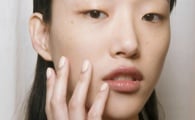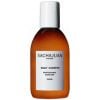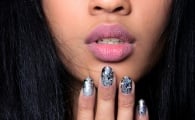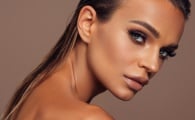Beauty Tips
10 Soothing Products That Work Magic on a Dry, Itchy ScalpIn winter, a lot of our time is taken up by liberally applying moisturizer to our skin. But are you paying equal attention to your dry, itchy scalp? These are the best dry scalp treatments and products for a healthy scalp. |
In winter, we're diligent about liberally applying moisturizer to our hydration-starved complexions. But are we paying the same attention to the skin under our hair to maintain a healthy scalp?
A dry, irritated scalp can be a problem at any time of the year, but the winter weather can make it that much worse. Changes in weather can throw off the balance of your scalp's natural hydration system, says Bosley Professional Strength certified trichologist and product and technical specialist Michelle Blaisure. The cold weather and indoor heating lead to even more scalp "confusion." On top of that, she points out that wearing hats where the scalp is not allowed to breathe adequately can negatively affect its balance. Thanks, winter.
The problem with dry scalps is that they're not initially as obvious as exposed areas. "Typically, people don't realize they have a dry scalp until they see it or really feel it, so flakes and itching are usually the major indicators," reveals Kristin Ess, celebrity hairstylist and founder of Kristin Ess. And it's very likely that dry scalp is affecting your hair health. Lars Skjoth, founder/CEO of Harklinikken, points out that up to 50 percent of the world's population is suffering from a dry scalp, itchy scalp and/or flaky scalp due to dandruff. For some it can be temporary, but others struggle for years with dry scalp.
A dry scalp doesn't necessarily equal dandruff, even if there are flakes. True dandruff is due to an overgrowth of a fungus naturally part of the scalp microbiome, says Blaisure. The imbalance causes scalps to overproduce skin cells, which leads to unsightly flakes. Dandruff flakes tend to stick to hair because of excess scalp sebum, whereas dry scalps produce white flakes that fall out, says Kevin Hughes, artistic director at Moroccanoil.
Dry scalps can also be caused by overusing products with a high alcohol content, shampooing too frequently, dehydration and the aforementioned change of seasons, according to colorist Amy Mrkulic of Vu Hair Salon in New York City. Dandruff should most likely be treated by a doctor, whereas dry scalps can be treated at home, she advises.
To get your scalp on the right track, here are best dry scalp treatments and products on the market.
Image via Imaxtree
This article originally appeared on theFashionSpot.com
SEE NEXT PAGE: Matrix Biolage R.A.W. Scalp Care Rebalance Scalp Oil, $30
A dry, irritated scalp can be a problem at any time of the year, but the winter weather can make it that much worse. Changes in weather can throw off the balance of your scalp's natural hydration system, says Bosley Professional Strength certified trichologist and product and technical specialist Michelle Blaisure. The cold weather and indoor heating lead to even more scalp "confusion." On top of that, she points out that wearing hats where the scalp is not allowed to breathe adequately can negatively affect its balance. Thanks, winter.
The problem with dry scalps is that they're not initially as obvious as exposed areas. "Typically, people don't realize they have a dry scalp until they see it or really feel it, so flakes and itching are usually the major indicators," reveals Kristin Ess, celebrity hairstylist and founder of Kristin Ess. And it's very likely that dry scalp is affecting your hair health. Lars Skjoth, founder/CEO of Harklinikken, points out that up to 50 percent of the world's population is suffering from a dry scalp, itchy scalp and/or flaky scalp due to dandruff. For some it can be temporary, but others struggle for years with dry scalp.
A dry scalp doesn't necessarily equal dandruff, even if there are flakes. True dandruff is due to an overgrowth of a fungus naturally part of the scalp microbiome, says Blaisure. The imbalance causes scalps to overproduce skin cells, which leads to unsightly flakes. Dandruff flakes tend to stick to hair because of excess scalp sebum, whereas dry scalps produce white flakes that fall out, says Kevin Hughes, artistic director at Moroccanoil.
Dry scalps can also be caused by overusing products with a high alcohol content, shampooing too frequently, dehydration and the aforementioned change of seasons, according to colorist Amy Mrkulic of Vu Hair Salon in New York City. Dandruff should most likely be treated by a doctor, whereas dry scalps can be treated at home, she advises.
To get your scalp on the right track, here are best dry scalp treatments and products on the market.
Image via Imaxtree
This article originally appeared on theFashionSpot.com
SEE NEXT PAGE: Matrix Biolage R.A.W. Scalp Care Rebalance Scalp Oil, $30





































